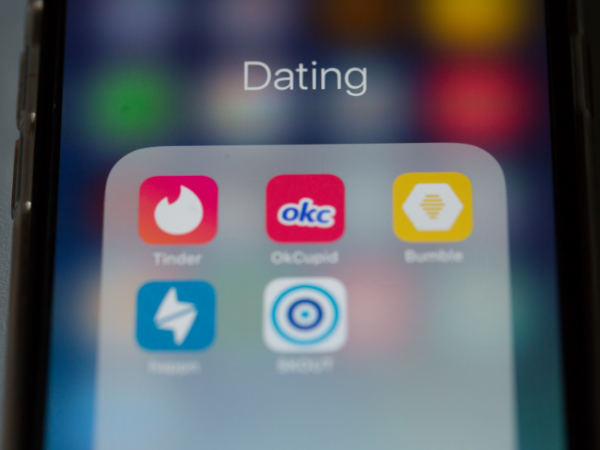How to stay safe on dating apps
LOS ANGELES – More than 40 million Americans use online dating services or dating apps. When meeting someone new, whether online or offline, it’s wise to keep a few safety precautions in mind.
Dating apps don’t conduct criminal background checks on users, so it’s up to each user to determine if they are comfortable meeting up with someone.
Rape, Abuse & Incest National Network (RAINN) has provided some tips on how to increase your safety when interacting with others using dating apps and services.
When connecting online
Use different photos for your dating profile. It’s easy to do a reverse image search with Google. If your dating profile has a photo that also shows up on your Instagram or Facebook account, it will be easier for someone to find you on social media.
Avoid connecting with suspicious profiles. If the person you matched with has no bio, linked social media accounts, and has only posted one picture, it may be a fake account. It’s important to use caution if you choose to connect with someone you have so little information about.

More than 40 million Americans use online dating services or dating apps. FILE PHOTO
Check out your potential date on social media. If you know your match’s name or handles on social media—or better yet if you have mutual friends online—look them up and make sure they aren’t “catfishing” you by using a fake social media account to create their dating profile.
Block and report suspicious users. You can block and report another user if you feel their profile is suspicious or if they have acted inappropriately toward you. This can often be done anonymously before or after you’ve matched.
As with any personal interaction, it is always possible for people to misrepresent themselves. Trust your instincts about whether you feel someone is representing themself truthfully or not.
The list below offers a few examples of some common stories or suspicious behaviors scammers may use to build trust and sympathy so they can manipulate another user in an unhealthy way.
- Asks for financial assistance in any way, often because of a sudden personal crisis
- Claims to be from the United States but is currently living, working, or traveling abroad
- Claims to be recently widowed with children
- Disappears suddenly from the site then reappears under a different name
- Gives vague answers to specific questions
- Overly complimentary and romantic too early in your communication
- Pressures you to provide your phone number or talk outside the dating app or site
- Requests your home or work address under the guise of sending flowers or gifts
- Tells inconsistent or grandiose stories
- Uses disjointed language and grammar, but has a high level of education
Examples of user behavior you may want to report can include:
- Requests financial assistance
- Requests photographs
- Is a minor
- Sends harassing or offensive messages
- Attempts to threaten or intimidate you in any way
- Seems to have created a fake profile
- Tries to sell you products or services
Wait to share personal information. Never give someone you haven’t met with in person your personal information, including your: social security number, credit card details, bank information, or work or home address. Dating apps and websites will never send you an email asking for your username and password information, so if you receive a request for your login information, delete it and consider reporting.
Don’t respond to requests for financial help. No matter how convincing and compelling someone’s reason may seem, never respond to a request to send money, especially overseas or via wire transfer. If you do get such a request, report it to the app or site you’re using immediately.
If you need help from a trained support specialist, you may contact the National Sexual Assault Online Hotline.

